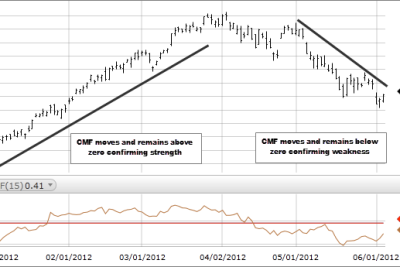
What were the impacts of Enlightenment and Romanticism in 19th century Europe

The 19th century was a period characterized by profound transformations across various domains, driven largely by intellectual movements such as the Enlightenment and Romanticism. These two movements, while both emerged from a quest for knowledge and understanding, presented starkly contrasting ideologies that shaped the political, social, and cultural landscapes of 19th century Europe. The Enlightenment promoted reason, science, and individual rights, aspiring to challenge tradition and usher in social progress through rational thought and empirical observation. On the other hand, Romanticism arose as a response to the rationalism of the Enlightenment, emphasizing emotion, nature, and individual experience. This tension between reason and emotion significantly influenced the various societal critiques emerging during this era.
The impacts of these movements remain foundational in understanding the broader historical narratives of Europe in the 19th century. From the emergence of new literary genres to innovative artistic expressions, the reverberations of Enlightenment and Romantic ideals continue to resonate in contemporary thought. This article explores how these movements impacted various facets of European society, contributing to the evolution of literature, politics, and governance throughout the 19th century.
- The Enlightenment: Key Principles and Ideas
- The Rise of Romanticism: A Reaction to Enlightenment
- Literary Responses to Societal Issues
- Politically Engaged Romantics: Diverging Perspectives
- The Role of Institutions in Romantic Thought
- Individualism vs. Social Order: A Central Theme
- Tocqueville's Insights: Democracy in 19th Century Europe
- The Evolution of Governance and Society: A Concluding Reflection
- Lasting Impacts: Legacies of Enlightenment and Romanticism in Modern Europe
The Enlightenment: Key Principles and Ideas
The Enlightenment was a cultural and intellectual movement that flourished in 19th century Europe, emphasizing reason as the primary source of authority and legitimacy. Thinkers such as Voltaire, Rousseau, and Kant challenged the established norms and traditions, advocating for individual freedoms and critical thinking. The principles of the Enlightenment laid the groundwork for modern democratic thought by promoting key ideas such as liberty, equality, and the social contract. This new paradigm encouraged people to evaluate their governments and societal structures, urging them to envision a society based on rationality and justice.
One of the most significant impacts of the Enlightenment was the pursuit of knowledge through scientific inquiry. The era saw remarkable advancements in various fields, including politics, philosophy, and the sciences. This intellectual shift encouraged people to question not only political authority but also social hierarchies and institutions. As a result, the Enlightenment significantly influenced the 19th century revolutions, notably the French Revolution, which sought to overthrow traditional monarchy in favor of democratic ideals.
The Rise of Romanticism: A Reaction to Enlightenment
In stark contrast to the logical aspirations of the Enlightenment, Romanticism blossomed in response to the perceived limitations of rational thought. The Romantic movement emerged as artists, poets, and philosophers began to emphasize emotion, individual experience, and the sublime aspects of nature. This shift reflected a growing discontent with the industrialization and mechanization that characterized the 19th century. Romantic thinkers argued that human emotion and the complexities of nature could not be fully understood through reason alone.
Romanticism celebrated the individual, championing personal creativity and subjective experience. Prominent figures such as William Wordsworth, Samuel Taylor Coleridge, and Johann Wolfgang von Goethe sought to reconnect humanity with nature and explore the realm of human emotions. This movement ultimately influenced many aspects of culture, leading to a revitalization in the arts that prioritized personal expression over societal conventions.
Literary Responses to Societal Issues
Throughout the 19th century, literature became a powerful vehicle for expressing societal issues, with both Enlightenment and Romantic writers employing their platforms to critique contemporary society. The Enlightenment's rationalist ethos inspired writers to address issues of justice, equality, and reason, while Romantic authors often focused on themes such as alienation, identity, and emotional turmoil.
Consider the works of Charles Dickens, who vividly illustrated the plight of the impoverished in industrializing England. Through novels such as "Oliver Twist" and "Hard Times," Dickens highlighted the cruelty and injustices present in society, albeit without providing clear solutions to the problems he presented. His emphasis on the human experience and suffering drew upon Romantic ideals while maintaining a critique of governmental apathy in the face of social issues.
Politically Engaged Romantics: Diverging Perspectives
While Romanticism has often been associated with idealism and emotional expression, many writers associated with the movement also engaged deeply with contemporary political issues. Figures such as Sir Walter Scott and Benjamin Disraeli, for instance, advocated for Tory democracy, arguing for a political system that balanced the needs of the aristocracy and the growing middle class. Their works championed the idea that society should evolve organically, embracing a blend of tradition and modernity.
Conversely, writers like Honoré de Balzac and Stendhal provided contrasting views on the role of institutions and the individual in society. Balzac's extensive novels, such as "Eugénie Grandet," portrayed society as a chaotic entity in need of restraint through established institutions like the church and monarchy. In contrast, Stendhal celebrated the individual genius, recognizing the struggles they faced while remaining skeptical about social structures that could inadvertently suppress such brilliance.
The Role of Institutions in Romantic Thought
Institutions played a crucial role in shaping the trajectories of Enlightenment and Romantic thought during the 19th century. The Enlightenment thinkers, with their focus on reason and empirical evidence, often critiqued traditional institutions, arguing for their reform or abolition in favor of systems that upheld individual rights and freedoms. This critical approach aimed to empower individuals against oppressive governance.
In direct contrast, Romantic thinkers emphasized the importance of certain institutions, viewing them as vital for maintaining social cohesion and moral order. The church and monarchy, often seen through a critical lens during the Enlightenment, were reconsidered by Romantics who argued that these institutions were essential for channeling the emotional and spiritual needs of society. This ideological tension underscored many of the political debates of the time, influencing how societies ultimately structured themselves in the decades to follow.
At the heart of the ongoing discourse between Enlightenment and Romantic ideals in the 19th century lies the tension between individualism and social order. Enlightenment thinkers championed the concept of the individual, advocating for personal liberties and inherent rights. They believed that society should be structured around the rational self-interest of individuals, allowing for democratic participation and governance based on consent.
Romanticism, however, often sought to find a balance between the individual and the collective, viewing emotions and social dynamics as essential components of human existence. This led to a rich exploration of how personal experiences intersect with broader societal structures. Writers and artists from this period often grappled with how to reconcile individual creativity and freedom with the need for order and morality within society.
Tocqueville's Insights: Democracy in 19th Century Europe
One of the most influential thinkers of the 19th century was Alexis de Tocqueville, whose seminal work "Democracy in America" offered profound insights into the dynamics of democracy and social structures. Through his observations, Tocqueville identified the strengths and limitations of democratic governance, foreshadowing future societal challenges such as the potential for tyranny of the majority, loss of individual liberties, and societal conformity.
Tocqueville's insights were especially relevant to the evolving democratic landscape in Europe. He noted how democracy enabled individual mobility and social fluidity but cautioned against the inherent risks of such freedom. His exploration of how democracy shapes both the individual and society at large provided critical reflections on the ongoing debates over governance and rights during the 19th century.
The Evolution of Governance and Society: A Concluding Reflection
As the 19th century progressed, the intertwined legacies of the Enlightenment and Romanticism became evident in the evolution of governance and societal structures across Europe. The ideals of reason, progress, and individual rights championed by the Enlightenment informed the reformist movements that sought to create more equitable and just societies. Meanwhile, the emotional depth, individual expression, and celebration of nature influenced cultural and artistic developments that enriched European society during this period.
Ultimately, the impacts of both movements shaped the conditions for modernity, influencing everything from political ideologies to cultural narratives. The dichotomy between reason and emotion, individualism and community, continues to be a foundational tension that informs not only historical analysis but also contemporary discussions about identity, society, and governance today.
Lasting Impacts: Legacies of Enlightenment and Romanticism in Modern Europe
The legacies of the Enlightenment and Romanticism are undeniably present in modern Europe, where their core principles continue to resonate in contemporary thought. From democratic governance and civil rights to artistic and literary forms, the values that emerged during the 19th century have left an indelible mark on European society. These movements challenged established norms and inspired new ways of thinking, ultimately contributing to the societal frameworks that define Europe today.
In conclusion, the impacts of Enlightenment and Romanticism in the 19th century were complex and multifaceted, shaping the evolution of thought, governance, and culture. As society grapples with the legacies of these movements, understanding their historical contexts helps illuminate the ongoing influence of these intellectual revolutions on contemporary Europe.
Did you find this article helpful? What were the impacts of Enlightenment and Romanticism in 19th century Europe See more here Education.
Leave a Reply






Related posts